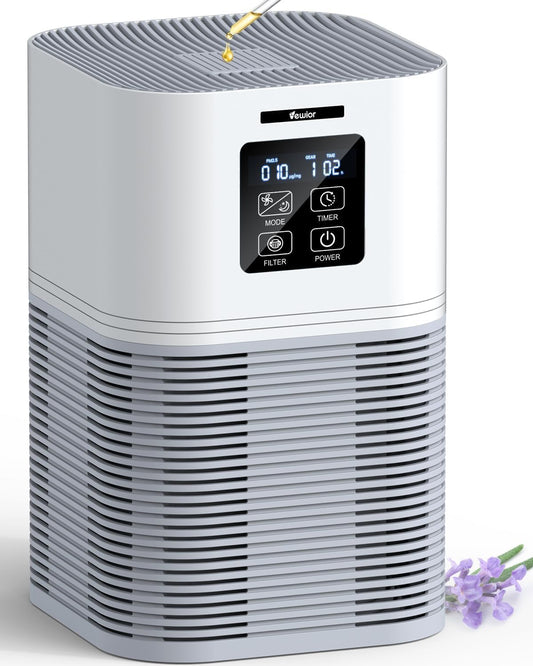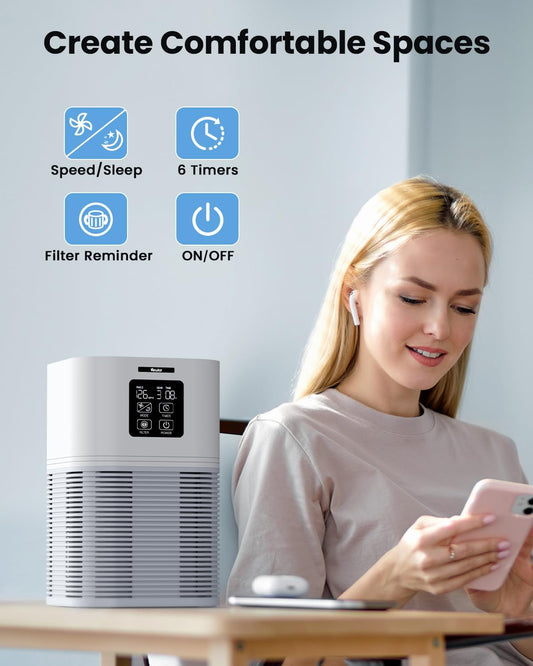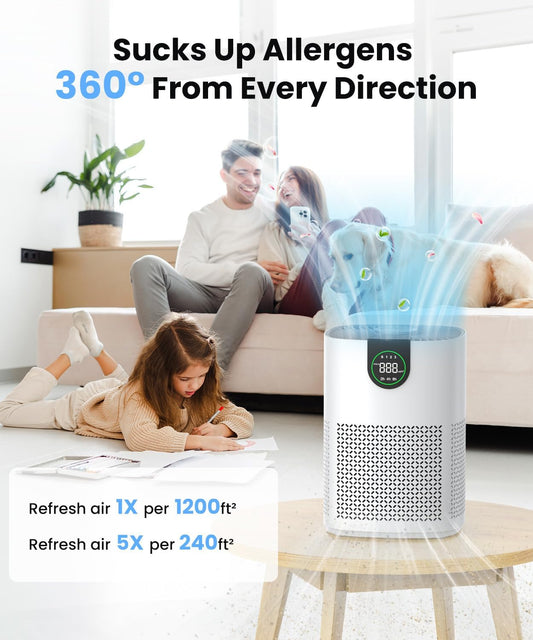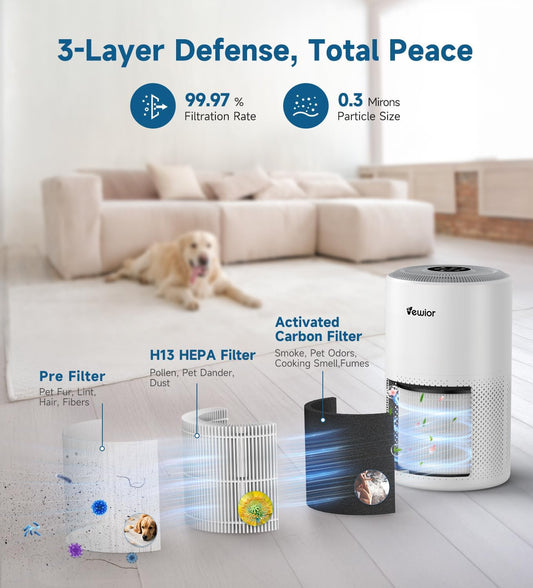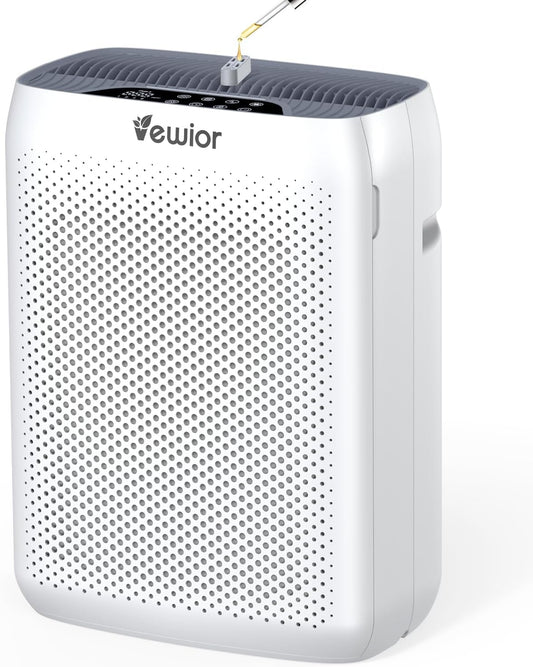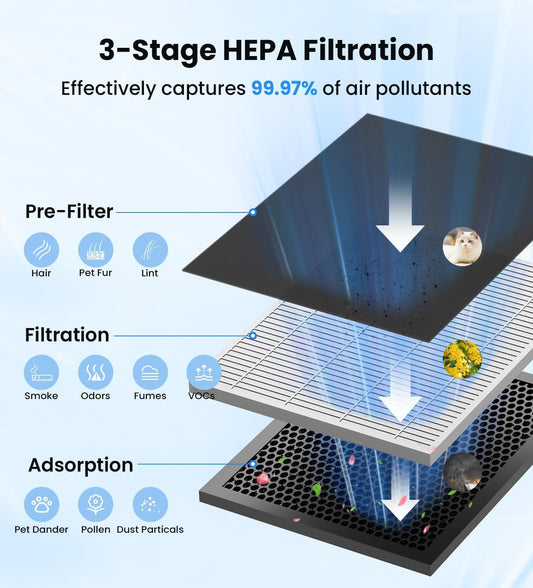Air pollution is a critical problem that affects our daily lives. With an increase in the number of vehicles on the road, industries, and deforestation, the air quality has significantly decreased. Breathing polluted air can have several harmful effects on our health, including respiratory issues, allergies, asthma, and other health conditions. This is where air purifiers come into the picture. In this essay, we will discuss why an air purifier is needed, and how it can help in improving the air quality.
The Importance of Air Purifiers
Air purifiers are designed to clean the air we breathe by removing harmful pollutants, allergens, and bacteria. These devices work by drawing in air from the room and filtering it through a series of filters, trapping particles, and releasing clean air back into the room. They can help to eliminate harmful particles like dust, pet dander, pollen, and mold spores from the air, which can be a significant cause of allergies and respiratory issues. Air purifiers can be particularly beneficial for individuals who suffer from asthma, allergies, or other respiratory conditions.
In addition to improving air quality, air purifiers can also help to reduce the spread of illnesses like the flu or common cold. Many air purifiers come equipped with HEPA filters, which can remove particles as small as 0.3 microns in size. This means that they can capture tiny airborne viruses and bacteria, preventing them from spreading throughout your home.
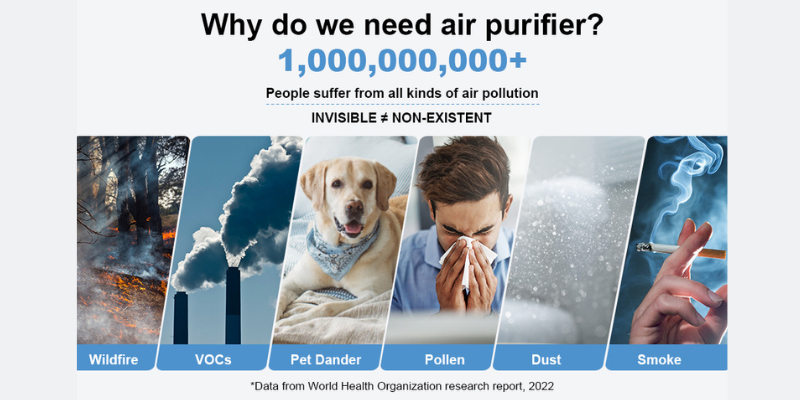
Benefits of Using an Air Purifier
- Better Indoor Air Quality
The air quality in our homes can be up to five times worse than outdoor air, according to the Environmental Protection Agency (EPA). This is because pollutants can become trapped indoors and accumulate over time. An air purifier can help to remove these pollutants, providing cleaner, fresher air for you and your family to breathe.
- Improved Respiratory Health
Air purifiers can be particularly beneficial for individuals who suffer from respiratory issues like asthma or allergies. By removing allergens and other pollutants from the air, air purifiers can help to reduce symptoms like coughing, wheezing, and shortness of breath.
- Better Sleep
The quality of the air we breathe can also affect our sleep. Poor air quality can cause irritation in the nose and throat, making it difficult to breathe and leading to a restless night's sleep. An air purifier can help to remove these irritants, creating a more comfortable sleeping environment.
- Protection Against Illness
As mentioned earlier, air purifiers can help to remove airborne viruses and bacteria, reducing the spread of illness. This is especially important during flu season or other times when illnesses are more prevalent.
- Reduced Odors
Air purifiers can also help to reduce unpleasant odors in your home. This is particularly beneficial for individuals who live with pets or in areas with high levels of pollution.
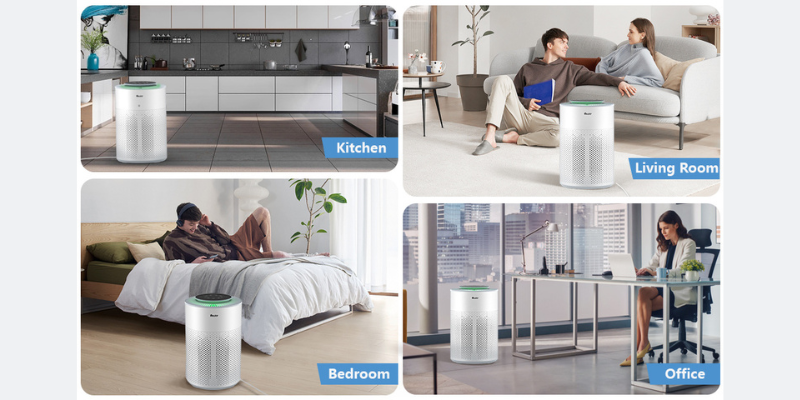
Types of Air Purifiers
- HEPA Air Purifiers
HEPA air purifiers are among the most popular types of air purifiers. These devices use a high-efficiency particulate air (HEPA) filter to remove 99.97% of particles that are 0.3 microns or larger in size. HEPA filters are effective at removing dust, pollen, pet dander, and other airborne allergens.
- Activated Carbon Air Purifiers
Activated carbon air purifiers are designed to remove odors and gases from the air. They work by using activated carbon, which is a form of carbon that has been treated with oxygen to make it more porous. This allows the carbon to absorb chemicals and odors from the air.
- UV-C Air Purifiers
UV-C air purifiers use ultraviolet light to kill bacteria and viruses in the air. These devices work by using UV-C light, which is a type of ultraviolet light that is effective at killing germs. The air is passed through a chamber that contains the UV-C light, which kills any bacteria or viruses that are present. UV-C air purifiers can be particularly useful for individuals who are concerned about the spread of illness.
- Ionic Air Purifiers
Ionic air purifiers work by releasing negative ions into the air, which attach to positively charged particles like dust and pollen, causing them to fall to the ground. While these devices can be effective at removing some pollutants from the air, they can also produce ozone, which can be harmful to individuals with respiratory issues.

Choosing the Right Air Purifier
When choosing an air purifier, it's essential to consider your specific needs. If you suffer from allergies or asthma, a HEPA air purifier may be the best choice, as it can effectively remove allergens from the air. If you're concerned about odors or chemicals in the air, an activated carbon air purifier may be a better option. UV-C air purifiers may be useful for individuals who are concerned about the spread of illness, while ionic air purifiers may be a good choice for individuals looking to remove particles like dust and pollen from the air.
It's also important to consider the size of the room where you will be using the air purifier. Air purifiers are rated based on the square footage of the room they can effectively clean. If you're using an air purifier in a larger room, you may need to purchase a more powerful device.
Conclusion
Air purifiers are essential devices that can help to improve the air quality in your home. They work by removing harmful pollutants, allergens, and bacteria from the air, providing cleaner, fresher air for you and your family to breathe. Air purifiers can be particularly beneficial for individuals who suffer from respiratory issues like asthma or allergies, and they can also help to reduce the spread of illnesses like the flu. When choosing an air purifier, it's important to consider your specific needs and the size of the room where the device will be used. With the right air purifier, you can enjoy cleaner, healthier air in your home.


